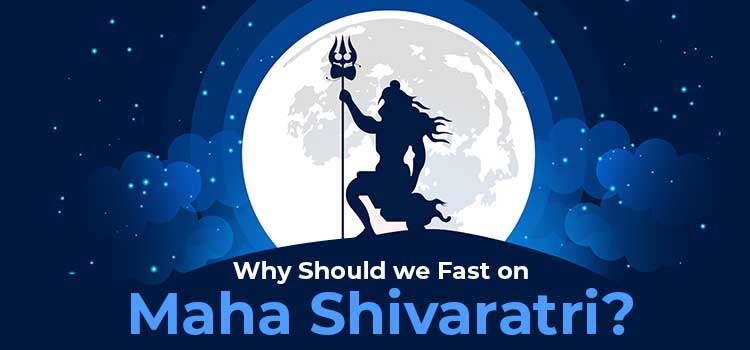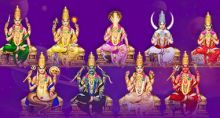Why Should we Fast on Maha Shivaratri
Why Should we Fast on Maha Shivaratri?
With Maha Shivaratri approaching, people are gearing up to prepare themselves for revering to one of the most powerful Gods, Shiva. He is Mahadev (Great God) and Shiva, in the Holy Trinity that includes Brahma and Vishnu. Maha Shivaratri is the most ancient festival and among the most important celebrated across the country.
The festival falls on Thursday, March 11, 2021. This is considered the appropriate time for observing a fast. While prayers, meditation, chanting of sacred mantras, and pooja are performed, fasting is also the main aspect of this festival. Keeping a Vrat (fast) ranges from light restriction to extreme abstention. It is observed to attain purity of the mind and body and to acquire divine grace.
Maha Shivaratri is a festival of austerity, when devotees seek deeper spiritual meaning, self-realization, and look within. Fast or Vrat, as it is popularly called, is often undertaken during many Hindu festivals. Usually, the pooja is performed, and then the Vrat is broken with Prasad, or food is consumed. The Vrat, kept during Shivratri, is kept for the day and the whole night until the next day when it can be broken after taking a bath.

Receive A Free Energized Rudraksha For Maha Shivaratri
While it is a ‘given’ that festivals are usually celebrated with delicious Prasad (sacred food offering) and tasty meals and desserts, Shivaratri strikes a different note. Why do we observe a Vrat (fast) on Maha Shivaratri? Fasting is observed in tandem with prayers, meditation, and looking for clarity of one's mind and thoughts. Fasting sets the rhythm for the body and mind to practice austerity.
While it is acknowledged that in our daily lives, we are busy with worldly fulfillment, we are attuned to the divine when it comes to religion. We have traditions and customs that include offering daily prayers and worship to the deities. Simply put, we maintain the tradition of lighting lamps and saying prayers; it is a daily ritual. Religious festivals are bound by a sense of deep faith and spiritual significance.
All our festivals hold spiritual, religious, social, and hygienic significance. A bath early in the morning is mandatory and followed by prayers and pooja (ritual). Vrat is a vow or a resolution and is associated with the practice of austerity. It finds mention in the Rig Veda and, also, in the Upanishads. It is a self-imposed restriction and is accompanied by prayers.
Fasting on Shivaratri is observed not just as a measure of self-discipline. It helps balance the body and mind. It purifies toxins in the body and keeps it light, allowing the mind to relax and stay calm. The mind now is in a better state of awareness and alertness and not rendered inactive or distracted. Fasting helps set the mind in readiness for focus, prayer, and meditation.
An alert mind can focus better on spiritual intent and offer sincere prayers. It helps the mind and conscious thought to manifest better. When you pray with sincerity and devotion, Shiva answers your prayers and bestows his grace and blessings.
Fasting helps you stay focused. When you perform meditation, your senses are well attuned and effective. Devotees find it easier to go into deep meditation and awaken the higher consciousness. The mind and body are balanced and in harmony, without allowing for distractions.
In our daily life, we are faced with varying degrees of emotions and responses. We may express joy, anger, sadness, impatience, bitterness, greed, worry, and negativity. Fasting helps clear the body of toxins, lightens the body and mind, neutralizes emotions, and helps you stay calm and focused than you normally would be. Fasting maintains a balance of harmony. When we offer prayers in devotion and with spiritual intent, God answers them. It is easy to carry oneself through the day on a light stomach, or just by consuming even milk or water.
While fasting is observed as a religious or spiritual ritual, it helps to remember that it improves overall health, maintains balance, reduces stress, removes toxins, and improves blood circulation and heart function. Spiritually, it is an act of sacrifice, a surrender to God as a mark of devotion. It controls emotions and keeps senses in check.
A festival like Maha Shivaratri paves the way for better attuning of body and mind. It awakens the inner self, inducing clarity, meditation, and prayer, establishing a spiritual connection with Lord Shiva, and moving towards a path of spiritual consciousness and awakening to attain Moksha (salvation).



















